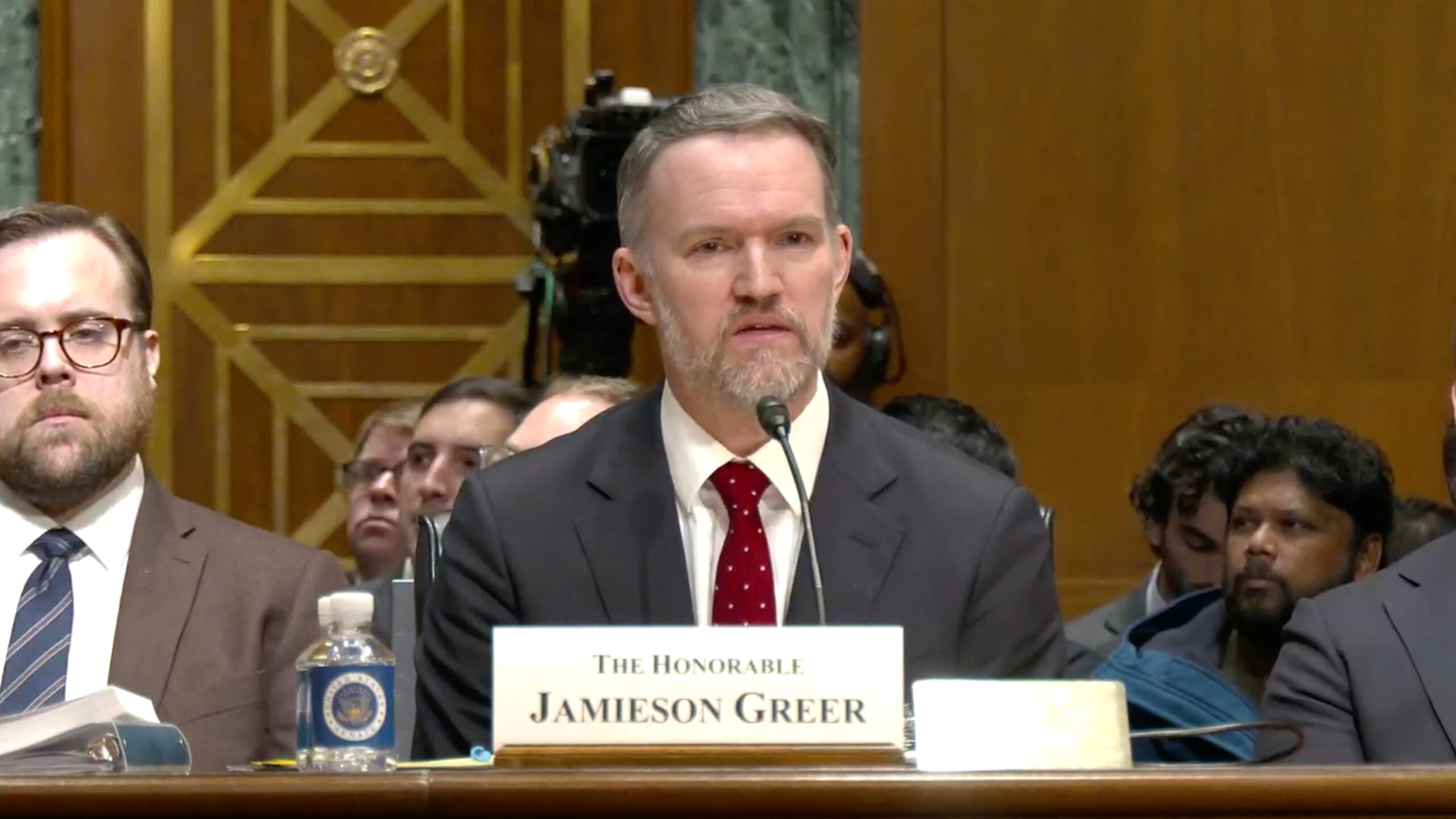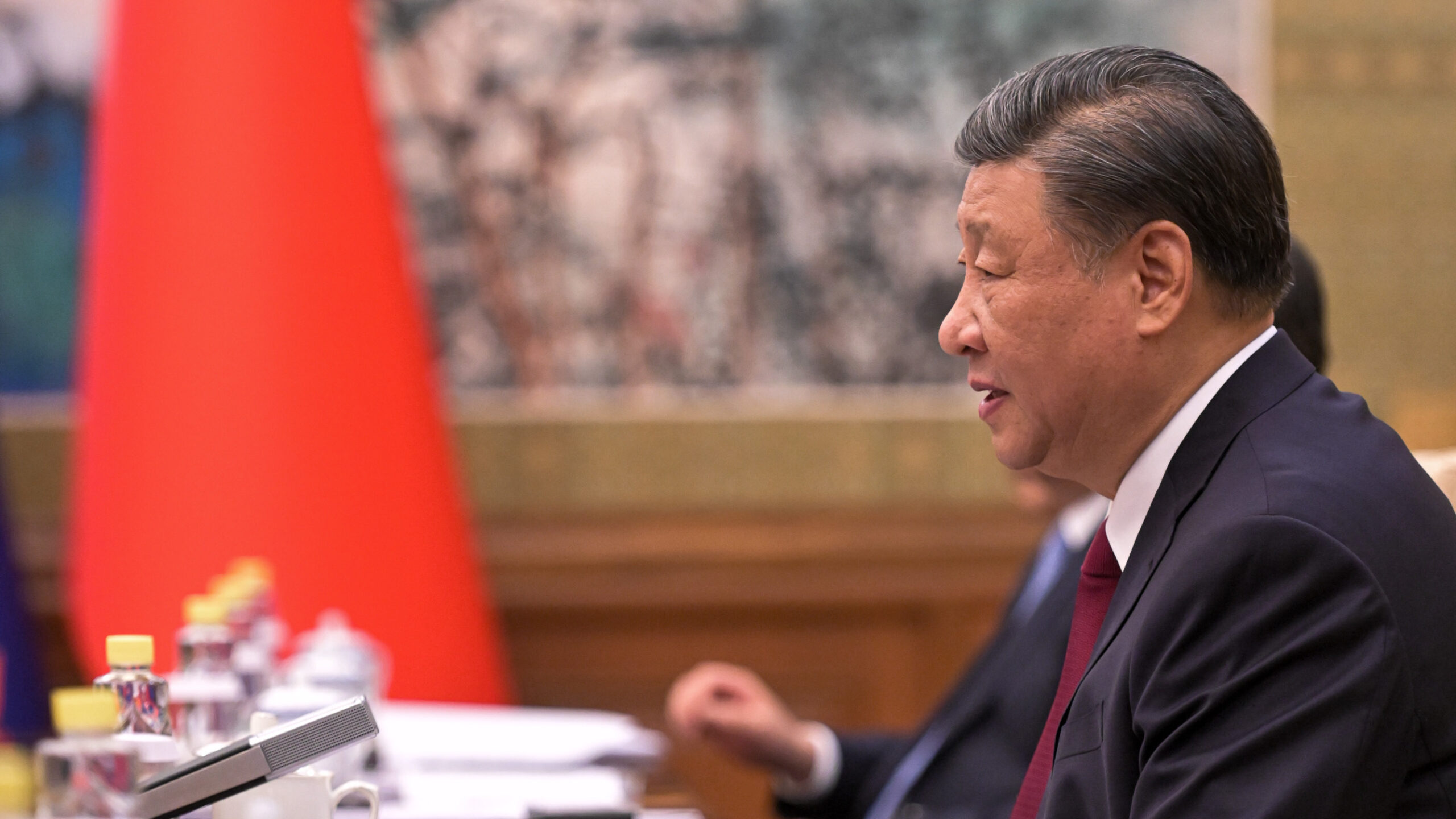
WASHINGTON—Lawmakers from both parties are mounting efforts to bolster the federal government’s scrutiny of surging Chinese investment in the U.S., emboldened by President Donald Trump’s anti-China rhetoric on trade.
[KATE O’KEEFFE | February 21, 2017 |Wall Street Journal]
They have yet to coalesce around any one plan, and the disparate ideas so far show early battle lines emerging. But the common goal among key lawmakers including Senate Majority Whip John Cornyn of Texas is to see the Committee on Foreign Investment in the U.S. used more aggressively.
Both Mr. Cornyn and Senate Minority Leader Chuck Schumer (D., N.Y.) are writing legislation to strengthen the authority of CFIUS, a secretive, multiagency body led by the Treasury that can recommend the president block foreign deals on national security grounds.
Chinese investment in the U.S. tripled last year to a record $45.6 billion, according to New York consulting firm Rhodium Group. Politicians on both sides of the aisle say some of the purchases threaten national security. Some also argue that the Chinese shouldn’t be able to invest here freely while U.S. companies face restrictions in China.
Mr. Cornyn is pushing measures that would require CFIUS to heighten scrutiny of Chinese technology deals but wouldn’t expand its remit beyond national security issues.
Mr. Schumer is preparing a broader proposal that would require CFIUS to also consider economic factors when assessing foreign deals—an idea that would fundamentally alter its mandate.
Other lawmakers are exploring additional options, including changes to the makeup or reporting structure of CFIUS, whose members include heads of various government departments and offices. One question is what role “Death by China” author Peter Navarro should play in the process. He is the head of Mr. Trump’s newly created National Trade Council.
The Trump administration is looking to give CFIUS more scope to reject technology deals, according to people involved in the discussions, but it is unclear how broad an approach the White House would favor.
Neither Mr. Navarro nor representatives for Mr. Trump provided comment.
President Gerald Ford created CFIUS in 1975 in response to Congress’s growing concerns about U.S. investments by members of the Organization of the Petroleum Exporting Countries. In the 1980s as Congress’s focus shifted east, CFIUS scrutinized attempts by Japanese firms to buy technology companies and military suppliers. These days Chinese investment is in the crosshairs.
The variety of approaches to strengthening CFIUS reflects the unique, dual-threat posed by China, said Mario Mancuso, a partner at Kirkland & Ellis LLP who leads the firm’s international trade and national security practice.
The U.S. faced a strategic threat with the former Soviet Union and an economic threat with Japan, he said. “Now we have China, which is both a strategic competitor and an economic competitor. I think the U.S. is still trying to understand what that means.”
Because the countries’ two economies are so deeply intertwined, any policy seeking to rein in China has risks. “What people have discovered in the past is that when you try to punish China in one area, you’re inadvertently damaging yourself in another area,” said J. Stapleton Roy, who served as U.S. ambassador to China under Presidents George H.W. Bush and Bill Clinton.
Previous attempts to significantly expand the CFIUS review process have been defeated in favor of nurturing the U.S.’s traditionally open investment policy. But the confluence of booming Chinese investment, a convergence of anti-China Republicans and antitrade Democrats, and the possibility of strong support from Mr. Trump, could tip the scales this time, according to a recent report by law firm Covington & Burling LLP, which saw “a greater chance now than at any time in the last decade of potential legislation to amend CFIUS.”
Bipartisan concerns over Chinese investment have been building for some time. One of President Barack Obama’s last major acts in office was to block a Chinese investment fund from buying German technology company Aixtron SE, which has U.S. assets, following a recommendation from CFIUS.
Rep. Robert Pittenger (R., N.C.) has emerged as one of the fiercest anti-China lawmakers, rounding up bipartisan groups of colleagues to call for scrutiny of even the smallest Chinese deals.
A year ago he sent a sent a letter cosigned by 45 other members of Congress calling for CFIUS to rigorously vet a planned $22 million deal for investors led by China’s Chongqing Casin Enterprise Group to buy the Chicago Stock Exchange, which handles less than 1% of U.S. equities trading. The lawmakers said they feared the deal could enable the Chinese government to manipulate U.S. equity markets, a charge the exchange has denied.
After CFIUS approved the deal in December, Mr. Pittenger and a few colleagues sent another letter, this time urging the Securities and Exchange Commission to block the deal and to extend the Jan. 3 deadline for public comment. The SEC extended the deadline until Tuesday.
Some Republicans concerned about Chinese investment might find common ground with Democrats like Mr. Schumer, who says the government should “use all tools at its disposal to protect the U.S. economy and American jobs, and that includes expanding the authority of CFIUS to review, investigate and block deals where the U.S. gets the short end of the stick.”
Mr. Cornyn’s plan would require CFIUS to maintain a classified list of “countries of concern” that pose military threats to the U.S. and heighten scrutiny on any deal makers from those places, according to an aide. At the same time, the senator wants to smooth the process for deals involving U.S. allies, the aide said.
Additionally, Mr. Cornyn wants to increase scrutiny on deals involving commercial technology that could also have military applications as well as expand the types of transactions that fall under CFIUS’s remit, including joint ventures and real estate deals near sensitive national security facilities, the aide added.
Though he’s advocating a narrower approach than Mr. Schumer, Mr. Cornyn still faces resistance from free-market advocates in his party who see any expansion of CFIUS as improperly protectionist.
In a recent interview Mr. Cornyn said he was working on the issue with fellow Texas Republican Jeb Hensarling, chairman of the House Financial Services Committee, and Sen. Mike Crapo (R., Idaho), chairman of the Senate Banking Committee. Those two committees have jurisdiction over CFIUS.
Mr. Hensarling is a determined free-marketeer, which could put him among the skeptics of a more aggressive government hand. Asked about CFIUS in a recent interview, Mr. Hensarling said: “It’s part of our agenda to review it—it’s not something I’m working on today.”












